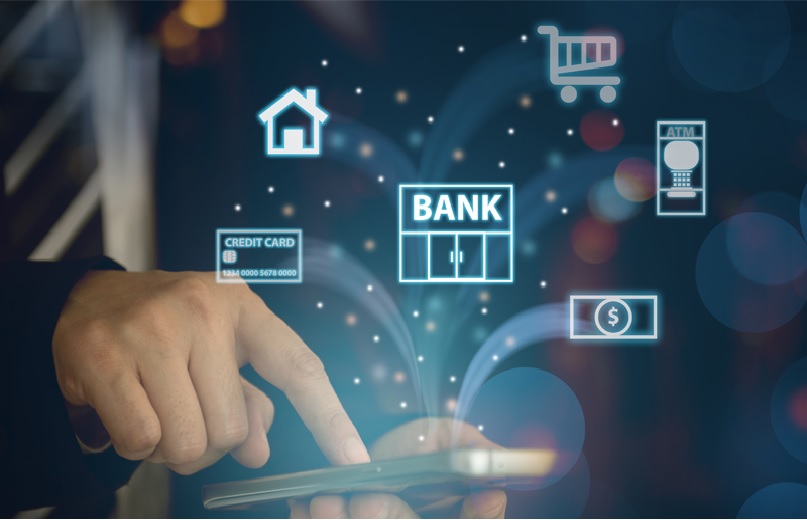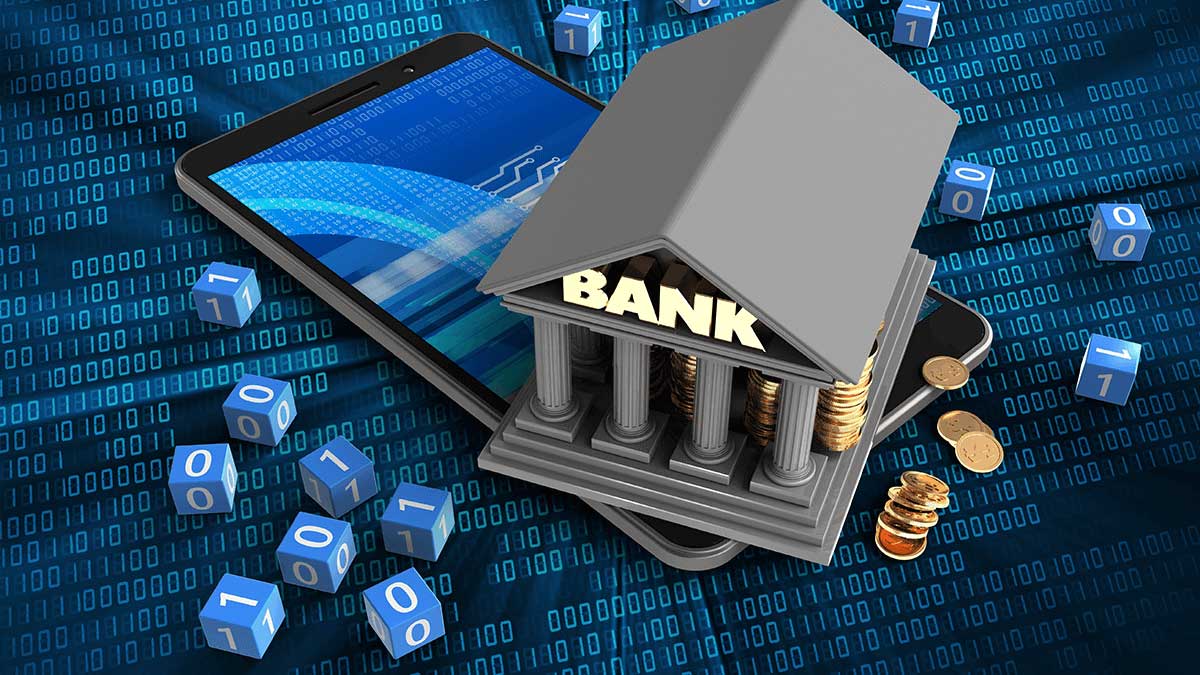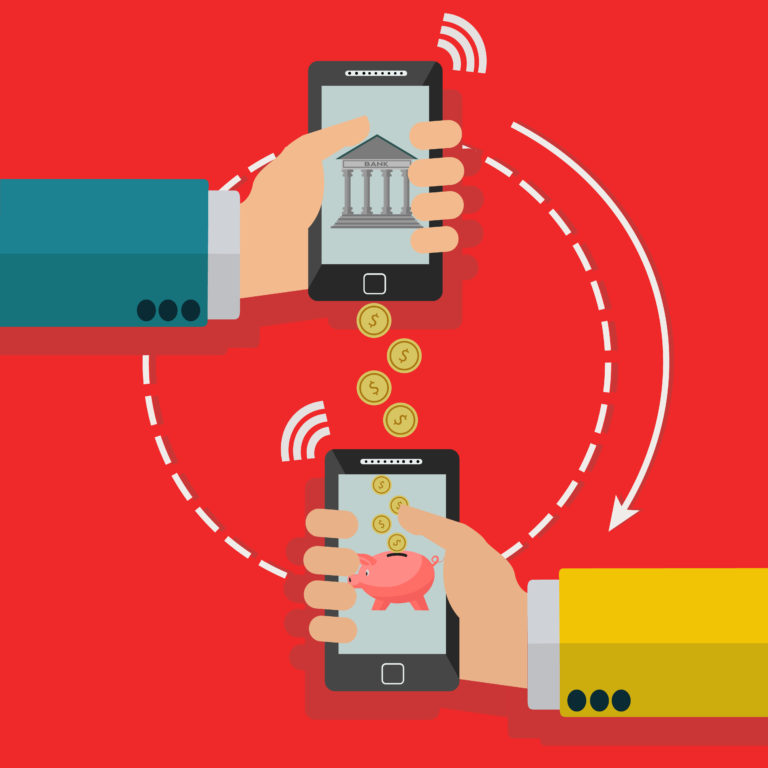Are Digital Banks Turning Us Into Financially Lazy Ghosts?

You know that feeling. It is a slow Tuesday afternoon, your meetings have ended, and a that familiar boredom starts to creep in. Almost on autopilot, your thumb finds the icon. A few taps later, two hot chicken pies are on the way. ₦2,000 debit alert.
The phone buzzes with a delivery notification for that book you “needed.” ₦6,000 debit alert. A friend messages, "Hey, can you send that 3,500 for the ride?" Another tap, another debit alert.
The money moves silently and effortlessly. It feels less like spending and more like tidying up digital notifications.
Later, a faint unease settles in. Your wallet feels light, but you have not touched physical cash in weeks. You promise yourself you will open the banking app later, do a proper audit, but the moment passes. The app, after all, is designed for spending, not for soul-searching.
We have entered the age of effortless spending. This is the world where financial technology has become so seamless, so intuitively woven into the fabric of our daily lives, that it risks making us passive passengers in our own financial journey. We have traded the tangible for the transactional, and in doing so, we might be trading away something crucial: our financial consciousness.

The Great Unshackling: How Digital Banks Became Our Financial Best Friends
Let’s be honest, traditional banks earned their terrible reputation. They were temples of bureaucracy, with their unending queues, their baffling forms and the stern, silent judgment of the front desk officer.
Banking was a chore, an errand you had to schedule your day around. It was a system that felt actively hostile to the person it was meant to serve.
Then came the revolution, with a download. Digital banks and fintech apps like Kuda, Opay, Palmpay, Moniepoint in Nigeria did the unthinkable: they made finance feel human.
They lived on our devices, and worked on our schedule. Opening an account went from days of ordeal to a five-minute affair. Transfers became instant and loans transformed from intimidating formalities into cheerful pop-ups: "Need a loan? Tap here!"
This upgrade gave financial power back to the people and the revolution was built on a single, irresistible pillar: convenience. But what happens when convenience becomes a flaw?
The Ghost in the Machine: The Psychology of Invisible Money
To understand the hidden cost of this convenience, we have to go back to cash. Remember the feeling of a new, crisp ₦1,000 note? Or the physical weight of a wallet fat with the week’s budget?
When you paid with cash, the transaction was a sensory experience. You handed over the notes, you felt them leave your possession, you saw your wallet grow thinner. This created what behavioral economists call "the pain of paying", an emotional friction that made you pause and consider the value of your purchase.
Digital spending systematically dismantles this friction. A 2021 study from MIT confirmed what many of us already feel in our emptying accounts: digital payments can increase spending by up to 25%. The reason is "decoupling."
The immediate pleasure of acquiring a new item is now completely separated from the psychological pain of parting with your money. That pain is deferred, abstracted into a number on a screen that will change days later.
This is the core of the problem. We’ve started to describe digital spending in detached terms. The money has become a ghost, present and powerful, but utterly intangible. When money is invisible, the discipline required to manage it often vanishes with it.

The Autopilot Trap: How Automation Lulls Us to Sleep
Digital banks don’t just make spending easy; they make thinking optional. They thrive on automation, selling it as the ultimate form of convenience.
Your Netflix subscription? Auto-renewed. Your data plan? Topped up automatically. Your savings goal? The app quietly siphons off tiny amounts in the background. You set it once and forget it. The problem is, "forgetting it" is precisely how we lose our financial awareness.
A 2023 survey in the UK found that over 60% of digital bank users were paying for at least one subscription they had completely forgotten about. Those tiny, silent debits add up to a significant financial bleed, all happening just below the level of your conscious attention.
We have been sold a narrative that friction is the enemy. But sometimes, friction is a friend.
The old-fashioned "bill day," where you had to sit down with a stack of papers and manually make payments, was a monthly ritual of financial awareness. It forced you to look your commitments in the eye.
Automation removes that crucial moment of review, that pause for reflection. It allows our financial lives to run on autopilot while we, the pilots, are asleep in the cockpit.
The "Now" Economy: When Instant Gratification Meets Instant Credit
Fintech didn't invent our culture of impatience, but it became its perfect financial engine. We live in a world of instant noodles, instant messages, and instant fame. Our entire digital ecosystem is designed to deliver immediate rewards. So why should finance be any different?
Let's enter the microloan and the Buy-Now-Pay-Later (BNPL) scheme. These are the logical endpoints of frictionless spending. Why endure the slow, disciplined process of saving for a new phone for six months when your app can front you the money in six seconds?
This normalization of digital debt is insidious. Young people increasingly juggle multiple small loans from different apps. And this constant reliance on "future money" erodes the muscle of long-term planning.
It teaches us that waiting is a form of failure and that gratification deferred is gratification denied. In a world without friction, patience is a radical act of rebellion.
The Other Side of the Coin: Technology as a Teacher
Before we declare our smartphones the ruin of our financial futures, it is only fair to present the counter-argument. The same technology that tempts us can also be our most powerful teacher if we choose to use it that way.
For the conscious user, fintech apps offer a level of financial insight that was previously available only to the wealthy with personal accountants.
Features like Kuda’s "Spending Insights" or Revolut’s analytics tools do something magical: they hold up a mirror to our habits. They categorize our chaos, showing us in stark, colorful pie charts that we spent 40% of our monthly income on "Food & Drinks," most of it after 10 PM.
These tools can transform abstract numbers into a coherent story about our lives. They can help us set budgets, create digital "pockets" for specific goals, and send us gentle (or not-so-gentle) alerts when we are straying off course.
Reclaiming Control: A Manifesto for the Conscious Digital Spender
So, where does this leave us? Are we doomed to be financially lazy ghosts, forever haunted by our own spending alerts? Absolutely not. The solution is not to smash our phones and stuff our wallets with cash.
It is to move from a passive to an active relationship with our digital tools. Here are practical steps for reclaiming financial mindfulness:
1. Interrogate Your Autopilot: Go through your subscriptions right now and turn off auto-pay for anything that isn't essential. Make a calendar reminder to do this every three months. Force yourself to manually approve each payment.
2. Schedule a Weekly Money Date: Once a week, open your banking app not to spend, but to observe. Look at the analytics and acknowledge the patterns without judgment.
3. Make Saving Visible and Emotional: If your app automatically saves for you, counteract the abstraction. Give your savings goal a name, a picture and celebrate when you hit milestones. Transfer the money to a separate, visible account and do a little dance. Connect the digital act to a real-world emotion.
4. Implement the "Cash Test": Before you tap for any non-essential purchase, pause. Visualize the equivalent amount in physical cash. This simple mental exercise can re-engage the cognitive brakes that digital spending disables.
5. Embrace "Slow Finance": Just as the "slow food" movement pushed back against fast food, we need a "slow finance" mindset. Deliberately choose the slower, more conscious option sometimes. Manually transfer your savings or pay a major bill. Use these moments as rituals to reconnect with the reality of your money.
The Final Balance: Your Habits Are Your True Wealth
Digital banking has democratized finance in an incredible, world-changing way. It has brought millions into the formal economy and made daily life infinitely more convenient. But in making the movement of money utterly effortless, it has introduced a new danger: that we become effortless about money itself.
The future of finance is not totally about going cashless; it is more about becoming more conscious. The challenge of our generation is not to navigate the complexities of paper forms and banking halls, but to stay spiritually and mentally awake in a digital environment that is designed to make us consume without thought.
Because the truth is, the smartest, most powerful bank is not the one on your phone's home screen. It is the one built from the habits, the awareness, and the conscious choices you cultivate every day. And that is one account no fintech app can ever manage for you.
You may also like...
Bundesliga's New Nigerian Star Shines: Ogundu's Explosive Augsburg Debut!

Nigerian players experienced a weekend of mixed results in the German Bundesliga's 23rd match day. Uchenna Ogundu enjoye...
Capello Unleashes Juventus' Secret Weapon Against Osimhen in UCL Showdown!

Juventus faces an uphill battle against Galatasaray in the UEFA Champions League Round of 16 second leg, needing to over...
Berlinale Shocker: 'Yellow Letters' Takes Golden Bear, 'AnyMart' Director Debuts!

The Berlin Film Festival honored
Shocking Trend: Sudan's 'Lion Cubs' – Child Soldiers Going Viral on TikTok

A joint investigation reveals that child soldiers, dubbed 'lion cubs,' have become viral sensations on TikTok and other ...
Gregory Maqoma's 'Genesis': A Powerful Artistic Call for Healing in South Africa

Gregory Maqoma's new dance-opera, "Genesis: The Beginning and End of Time," has premiered in Cape Town, offering a capti...
Massive Rivian 2026.03 Update Boosts R1 Performance and Utility!

Rivian's latest software update, 2026.03, brings substantial enhancements to its R1S SUV and R1T pickup, broadening perf...
Bitcoin's Dire 29% Drop: VanEck Signals Seller Exhaustion Amid Market Carnage!

Bitcoin has suffered a sharp 29% price drop, but a VanEck report suggests seller exhaustion and a potential market botto...
Crypto Titans Shake-Up: Ripple & Deutsche Bank Partner, XRP Dips, CZ's UAE Bitcoin Mining Role Revealed!

Deutsche Bank is set to adopt Ripple's technology for faster, cheaper cross-border payments, marking a significant insti...
